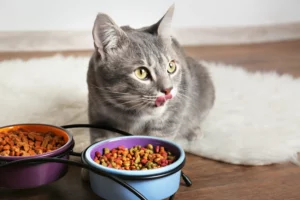A Guide to Fuzzy Pet Health and Fitness

Introduction
Keeping our fuzzy companions healthy and fit is a top priority for pet owners. Our pets rely on us to provide them with the care they need to lead happy and fulfilling lives. In this guide, we will explore various aspects of fuzzy pet health and fitness, including essential care routines, exercise tips, and preventive measures to ensure their overall well-being. Let’s dive into the world of fuzzy pet health and discover how we can best support our furry friends.
Table of Contents
Understanding Fuzzy Pet Health
Maintaining good health in our fuzzy pets is crucial for their longevity and happiness. Regular check-ups with a veterinarian are essential to monitor their overall well-being and address any potential health concerns promptly. During these check-ups, vaccinations, dental health, and weight management are often assessed to ensure that our pets stay healthy and active.
Nutrition for Fuzzy Pets
Proper nutrition plays a vital role in maintaining the health of our fuzzy friends. A well-balanced diet, tailored to their specific needs, provides the necessary nutrients for growth, energy, and immune system support. It is important to choose high-quality pet food that meets their dietary requirements and to avoid overfeeding, which can lead to obesity and related health issues.
Exercise and Fitness for Fuzzy Pets
Regular exercise is essential for keeping our fuzzy pets in optimal health. Engaging in physical activities not only helps maintain a healthy weight but also strengthens muscles, improves cardiovascular health, and promotes mental well-being. Dogs enjoy brisk walks, runs, and interactive play sessions, while cats can benefit from toys, climbing structures, and interactive playtime with their owners.
Mental Stimulation and Enrichment
Fuzzy pets need mental stimulation and enrichment to thrive. Interactive toys, puzzle feeders, and games that encourage problem-solving can help keep their minds sharp and prevent boredom. Regular playtime and training sessions provide opportunities for bonding and mental engagement, enhancing their overall well-being.
Preventive Measures for Fuzzy Pet Health
Preventing health issues before they arise is vital for maintaining fuzzy pet health. Regular grooming, including brushing their fur, cleaning their ears, and trimming their nails, helps prevent skin conditions and infections. Flea and tick prevention, as well as heartworm medication, are also important preventive measures to protect our pets from parasites.
Dental Care for Fuzzy Pets
Dental health is often overlooked but is crucial for fuzzy pet well-being. Regular teeth brushing and using pet-friendly toothpaste, help prevent dental disease and keeps their breath fresh. Dental chews and toys designed to promote oral health can also assist in reducing plaque and tartar buildup.
Recognizing Signs of Illness
As responsible pet owners, it’s important to be aware of the signs that may indicate illness in our fuzzy companions. Changes in appetite, energy levels, behavior, or appearance should be promptly addressed with a veterinarian. Being proactive and seeking medical attention early can often prevent minor issues from escalating into more significant health problems.
Emotional Well-being of Fuzzy Pets
Emotional well-being is just as important as physical health for our fuzzy pets. Providing a safe and nurturing environment, socializing with other animals, and spending quality time together helps them feel loved and secure. Recognizing and addressing signs of anxiety or stress is crucial to ensuring their overall emotional well-being.
Fuzzy Pet Health and Aging
As our fuzzy pets age, their health needs may change. Regular check-ups become even more important to detect age-related conditions such as arthritis, dental issues, or vision problems. Adjustments to their diet, exercise routine, and living environment may be necessary to accommodate their changing needs and provide a comfortable and fulfilling senior life.
Maintaining Fuzzy Pet Health Through Regular Check-ups
Regular veterinary check-ups are essential for maintaining the health of our fuzzy pets. These check-ups allow the veterinarian to assess their overall well-being, address any potential health concerns, and provide necessary vaccinations. During these visits, the veterinarian will examine your pet’s teeth, eyes, ears, and body condition, ensuring that they are in optimal health. By scheduling routine check-ups, you can catch any potential health issues early on and take proactive steps to keep your fuzzy pet healthy and happy.
The Role of Nutrition in Fuzzy Pet Health
Proper nutrition is key to promoting fuzzy pet health. Providing a well-balanced diet that meets their specific dietary requirements is essential for their overall well-being. High-quality pet food, rich in essential nutrients, ensures that your furry friend receives the necessary vitamins, minerals, and proteins for optimal growth and development. Avoid overfeeding and choose food appropriate for their age, size, and breed to prevent obesity and related health problems. By focusing on their nutritional needs, you can contribute to their long-term health and vitality.
Conclusion
Caring for our fuzzy pets’ health and fitness is a lifelong commitment. By understanding their specific needs, providing proper nutrition, regular exercise, preventive care, and emotional support, we can ensure that they lead healthy and fulfilling lives. Remember, a happy and healthy pet brings immeasurable joy to our lives, and our efforts to maintain their well-being are well worth it.
Learn about: Take charge of your health journey. Learn how to identify pre diabetes symptoms in women and prioritize your well-being today.






